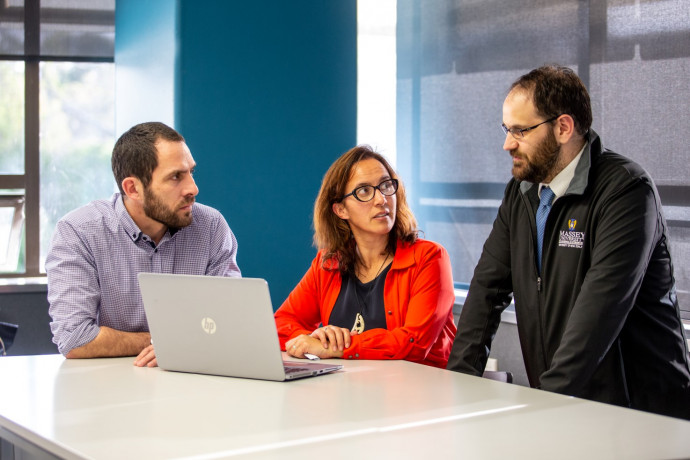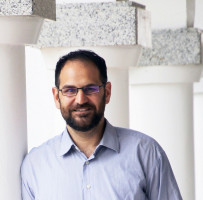Matthew Roskruge

2019: Dr Matthew Roskruge, Te Au Rangahau (Māori Business Research Centre) and the School of Economics and Finance at Massey University, has been awarded a Rutherford Discovery Fellowship for research titled ‘The economics of social capital from a Māori perspective’
Published 10 Whiringa-ā-nuku October 2019
Biography

Dr Matthew Roskruge. Photo: Supplied
Dr Roskruge (Te Ātiawa, Ngāti Tama) is a senior lecturer in economics at Massey University. After receiving his PhD in economics from the University of Waikato in 2014 he spent a brief period in the public service before returning to the Waikato as a research fellow in the National Institute of Demographic and Economic Analysis (NIDEA). Following this, he joined Massey Business School where he is currently the Co-Director of Te Au Rangahau, Massey’s Māori business research centre. Dr Roskruge specialises in applied econometrics, mixed-methods and kaupapa Māori research with a particular passion for social capital, population studies, public economics and the Māori economy. His research has been supported by MBIE, HRC and Ngā Pae o te Māramatanga with whom he is collaborating to invigourate Māori economics and inspire new Māori economists.
Research Summary
Social capital, the value resulting from networking and social connectedness, is a well-established contributor to economic and social wellbeing. However, it is rarely studied using frameworks outside of the dominant western paradigm. This means that social capital measures and activation pathways often fail to reflect indigenous realities, including the experiences of Māori, limiting the use of social capital to improve Māori lives and grow the Māori economy. Dr Roskruge’s research programme will change this by introducing mātauranga Māori and the Aotearoa New Zealand context to existing frameworks of social capital. This will create a by-Māori, for-Māori understanding of social capital which can be used to enhance wellbeing and contribute to overcoming stubborn socio-economic disadvantages, racism and discrimination across Aotearoa.
Over the course of his Rutherford Discovery Fellowship, Dr Roskruge will use a mixed-methods and collaborative approach to develop an understanding of what social capital means within a Māori world view. Developing this understanding involves working with Māori stakeholders to co-create a framework of social capital. He will test this framework under the broad themes of ‘bonding’ social capital within te ao Māori and ‘bridging’ social capital between Māori and non-Māori communities. The ‘Bonding’ theme will firstly focus on how Māori use social capital to achieve socio-economic success and navigate colonial institutions. The focus will then move to the role of Māori social capital and infrastructure as we move into a fourth industrial revolution characterised by increased digitisation, automation and globalisation. The ‘Bridging’ theme explores the connections between Māori and non-Māori social capital, with a particular focus on migrant settlement, Pākehā identity and the connections between Māori social capital and those of other indigenous peoples. The findings will contribute to the activation of Māori social capital to improve wellbeing and continue growing the Māori economy.
